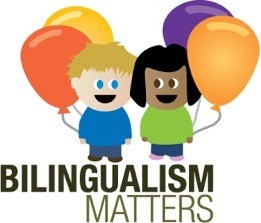Many early studies on bilingualism had conflicting results but the majority had a general conclusion that being bilingual had negative impact on a child’s linguistic and cognitive development and are at a disadvantage to monolinguals. The belief was learning two different languages would confuse bilingual children which in turn would lower the intelligence. Bilingual children would be spending more energy at differentiating between the two languages. Their vocabulary would be smaller because they have to learn two sets of vocabulary instead of focusing on just one. However, these early studies were flawed. These old poorly designed studies gave the public misconception that bilinguals had lower intelligence than monolinguals.
A study on bilingualism found that bilinguals perform worse in IQ test compare to monolinguals. (Darcy, 1953) This study claim that bilinguals had smaller vocabularies and had issues on language development based on the verbal section of the IQ test. One major problem is that the IQ test is culturally bias and is English orientated.
Like many other flawed studies, they did not take into account many factors. For example most bilingual children were recent immigrants with weaker English skills and are in different social economical status compared to monolingual participants. Furthermore, bilinguals are often assessed in one language usually in English if tested in the United States which provides an inaccurate assessment of linguistic skill if English is not the dominate language. Many older studies did not have a set criterion on the definition of bilingualism. They may consider a immigrant who just came to American and just started to learned English as a bilingual child.
The flaws in these early studies were brought to light by Peal and Lambert (1962) which emphasizes the importance of controlling factors such as age, sex, social economical status and standardize criterion on what is bilingualism while selecting samples for studies. In their study, they found that bilinguals showed significant advantages over monolingual in verbal and non-verbal test. There was even more significant difference in the non-verbal test which required more mental flexibility.
Afterward, there were more recent studies with more careful controls for factors were finding that bilingualism had an advantage to monolinguals in certain aspects of cognitive functions.Studies suggests that bilingual children have increased meta-cognitive skills and better at divergent thinking. In addition, bilingual children are shown to better at perceptual tasks than their monolingual counterparts.(Bialystock, 2001)
There are still some few studies that still find bilinguals at a disadvantage but the majority of the newer studies are leaning towards that bilinguals have the advantage over monolinguals.
For example, a study by Umbel and Oller (1993) found that bilingualism is associated with delays in lexical acquisition with small vocabularies. However, a well controlled study by Baker and Jones (1998) found that there was no significant difference in verbal ability between monolingual and bilingual middle school children. The general opinion nowadays on bilingualism is that is does more good than harm.
